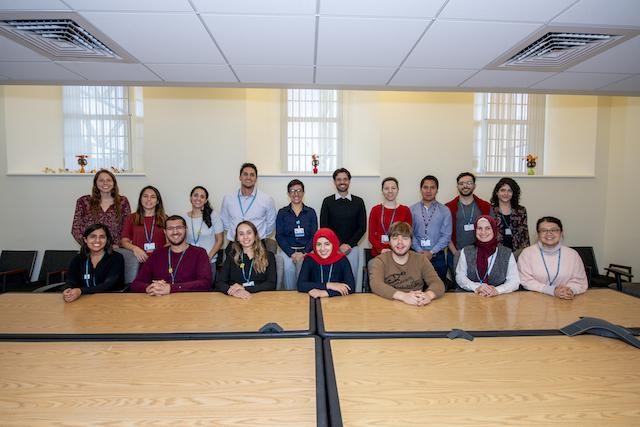Job Scam Alert Any emails received from hr@spauldingrehab.org or calls from (816) 263-2347 are fraudulent and not affiliated with Spaulding Rehabilitation or Mass General Brigham. Any emails or calls should be deleted and blocked. More Information >
Header Skipped.
Research Director, Spaulding Neuromodulation Center, Spaulding Rehabilitation Hospital
Dr. Felipe Fregni is the Director of the Spaulding Neuromodulation Center. He has an M.D. and Ph.D. from University of Sao Paulo, M.M.Sc. Scholars in Clinical Science Program at Harvard Medical School and M.P.H. Clinical Effectiveness at Harvard School of Public Health and a masters of education (M.Ed.) from Harvard Graduate School of Education. He completed his Neurology Residency at University of Sao Paulo, post doctoral training in Neuroscience at Beth Israel Deaconess Medical Center in Boston and was a visiting fellow in Neurophysiology at Federal University of Pernambuco as well as in Clinical Neurophysiology at University of Goettingen, Germany. He is an Associate Professor of Physical Medicine and Rehabilitation at Harvard Medical School and an Associate Professor in the Department of Epidemiology Harvard T.H. Chan School of Public Health.
Dr. Fregni’s major research interests include the development of non-invasive brain stimulation techniques to understand and also to guide interventions aiming at modulating neuroplasticity in chronic neurological and neuropsychiatric conditions associated with maladaptive plasticity such as chronic pain and post-stroke motor rehabilitation. During his physician-scientist experience, Dr. Fregni has developed and conducted several clinical trials, as well as observational trials and even literature reviews on the subject. His contribution to science has given him the recognition of being a pioneer in transcranial electrical and magnetic stimulation. Additionally, Dr. Fregni’s passion for scientific education and clinical research methodology cultured the biggest international worldwide training program in clinical research to allow young investigators from different countries and backgrounds to train in the Principles and Practice of Clinical Research.
Associate Research Director, Spaulding Neuromodulation Center, Spaulding Rehabilitation Hospital
Leon Morales-Quezada is a physician-scientist with experience in neurocognitive rehabilitation, noninvasive neuromodulation, applied psychophysiology, and technology development for neurological rehabilitation. Dr. Morales-Quezada received his MD degree from Universidad Autonoma de Aguascalientes Medical School and completed clinical training in emergency medicine and intensive care. While working in the intensive care environment, Dr. Morales-Quezada realized that most patients would survive their medical conditions, but with poor quality of life. For this reason, he decided to learn more about neurological rehabilitation and neuroplasticity, which led him to the USA. He completed a fellowship and Masters in Neuropsychology Rehabilitation at Touro College, and his PhD in Cognitive Neurosciences from De Montfort University in Leicester UK. Dr. Morales-Quezada obtained a Master’s in Public Health from Harvard School of Public Health, and simultaneously completed a fellowship in Integrative Medicine from the Harvard-NIH/NCCIH program, at the Division of General Medicine and Primary Care at Beth Israel Deaconess Medical Center (BIDMC) and Spaulding Rehabilitation Hospital (SRH), Harvard Medical School. Dr. Morales-Quezada’s research interests focus on noninvasive neuromodulation applied to neurological and cognitive rehabilitation, the role of placebos in pain control, and phenotyping the placebo effect using neurophysiological measures.
Our team of fellows is composed of engineers, physicians, physical therapists, neuroscientists, physiologists, medical students, among others. There is a wide variety of nationalities, cultures and backgrounds that enrich the working and learning environment. Long term fellows have joined the laboratory from many parts of the world, including all continents so far. Observers and short-term fellows also come from diverse backgrounds and are able to visit and see what state of the art research the neuromodulation center is developing.
Fellows who have joined the center have also continued their research careers in other clinical and research settings around the globe. This experience is unique, since multicultural environments like the neuromodulation center are an international hub for collaboration, peer-learning and developing research skills in neuroscience; therefore, the laboratory is continuously welcoming different fellows as well as observers. Many training programs and continuing education is available; one program that stands out is Principles and Practice of Clinical Research, which has helped in training many scientists during the past years.

For more information on the fellowships, please complete the “Contact Us” form.
